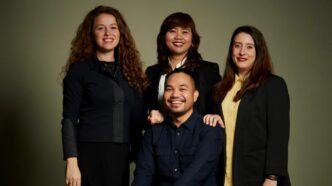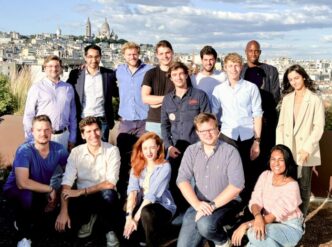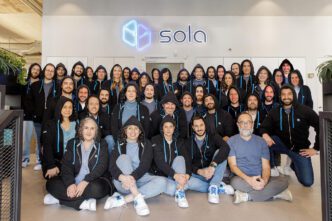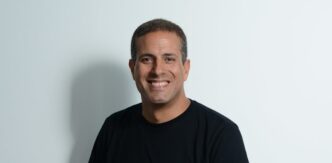While many consumers are aware of plastic pollution, few realize that the problem starts right at their bathroom sink. From shampoos and moisturizers to makeup products, invisible microplastics—chemicals that never break down—are quietly hiding in plain sight. These tiny particles don’t just wash off; they accumulate in our ecosystems for generations.
But one Danish startup is taking this issue head-on. Meet Cellugy, a female-founded biotech company from Søborg, Denmark, that just secured €8.1 million in non-dilutive funding from the EU’s LIFE Programme. Their goal? To scale up EcoFLEXY, a bio-based alternative to microplastics in personal care products.
EcoFLEXY is a cellulose-rich material created through microbial fermentation. Unlike conventional thickening agents like carbomers and acrylates—which are derived from fossil fuels—EcoFLEXY is designed to be both high-performing and biodegradable. That means it can deliver the same smooth texture and product stability without the environmental damage.
A Four-Year Push to Commercialize Biotech Innovation
The funding will support BIOCARE4LIFE, a four-year initiative focused on scaling EcoFLEXY’s production, refining its fermentation process, and validating both its climate impact and cost competitiveness. The project aims to prevent 259 tonnes of microplastic waste annually, with plans to scale that to over 1,200 tonnes by 2034.
For Cellugy CEO and co-founder Dr. Isabel Alvarez-Martos, the message is clear: “Sustainability alone isn’t enough. Brands need high-quality, easy-to-adopt alternatives. That’s what EcoFLEXY delivers.”
While other natural alternatives exist—like xanthan gum or plant-derived cellulose—they often fall short in performance. EcoFLEXY, however, is engineered for the cosmetics industry, offering texture, viscosity, and formulation flexibility that rivals its petrochemical counterparts.
Scaling Sustainably With AI and Circular Economy Experts
The BIOCARE4LIFE project brings together an impressive team of partners. Denmark’s The Footprint Firm is helping validate the product’s circular impact, while Berlin-based startup Sci2sci is using machine learning to optimize the biotech process for efficiency and scale.
“EcoFLEXY’s strength lies in combining performance with proven sustainability,” said Will Nunn from The Footprint Firm. Meanwhile, Angelina Lesnikova of Sci2sci added, “The challenge isn’t just technical—it’s commercial. Our role is to make this solution cost-effective and climate-positive at scale.”
This collaboration comes at a time of growing regulatory pressure on the cosmetics industry. The EU’s microplastics ban and the U.S.’s tightening rules on PFAS are pushing brands to rethink their ingredient lists. With nearly 70% of the €2.8 billion rheology modifier market still reliant on fossil fuels, the demand for drop-in, bio-based alternatives is booming.
“We’re no longer just experimenting in the lab,” Alvarez-Martos noted. “This grant gives us the runway to bring real, industrial change. Our goal is nothing short of sweeping petrochemicals out of personal care.”
Founded in 2018, Cellugy previously raised €7 million from investors and has been named one of Europe’s top 10 startups developing plastic alternatives. The company’s team of 13 spans 10 nationalities and is united by one mission: replacing toxic ingredients with biology-first innovation.













